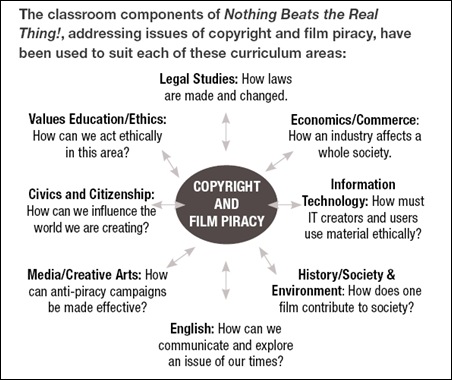Home » personal (Page 4)
Category Archives: personal
A Little Bit of History …
Here’s an amusing little bit of personal history: when I was 8 years old, my dad and I were filmed as part of a Channel 7 Perth promotional advertisement series (dad had friends who worked for Channel 7 at the time). I hadn’t seen the clip in more than a decade, but dad recently resurrected it (albeit in very poor quality, as the is a digitisation of a VHS copy from a second-generation BETA copy, with the soundtrack clearly out of sync). The promo is about 30 seconds, but watch around the 18 second mark for my fleeting 2-seconds:
The Day the Cupcake Stood Still



[Look Behind You! Run, Run for your Life! Nom, Nom, Nom all CC BY]
I turned 32 on the weekend, but with a 9-week old in the house we’re much more in tune with our inner children, too, so I was just blown away when Em made me these amazing Alien Invader cupcakes! There were lots of other highlights – a great lunch with family, some brilliant presents, watching my son giggle away, and an early Christmas party dinner with good friends – but I just had to share the cupcake pictures! 🙂
AFACT vs iiNet (and convincing Australia’s teenagers they’re pirates)

As most people in Australia would now be aware, one of the most important developments in terms of civil rights and the Australian internet has now gone before the courts as a consortium, led by the Australian Federation Against Copyright Theft (AFACT) is suing ISP iiNet for refusing to cut off customers for alleged (not proven!) copyright infringement in terms of bittorent media downloads. From the Age:
The Australian film and television industry has launched a major legal action against one of Australia’s largest internet service providers for allegedly allowing its users to download pirated movies and TV shows. The action against iiNet was filed in the Federal Court today by Village Roadshow, Universal Pictures, Warner Bros, Paramount Pictures, Sony Pictures Entertainment, 20th Century Fox, Disney and the Seven Network. Mark White, iiNet’s chief operating officer, said the company did not support piracy in any form but it could not disconnect customers just because the movie industry claimed they engaged in illegal downloading. Adrianne Pecotic, executive director of the Australian Federation Against Copyright Theft (AFACT), said the action followed a five-month investigation by the industry.
There are also arguments made that peer to peer networks should simply be blocked (although that argument hasn’t been in quit those terms just yet in this case) but that serves as a good opportunity to remember that p2p and, yes, even bittorent, are not intrinsically for distribution of ‘pirated’ media; there are plenty of things, including feature films, being distributed via peer to peer networks which are entirely legal!
One thing this case should, hopefully, achieve, is to test the extent to which recently imported ‘safe harbour’ provisions actually stand up in an Australian court:
"This is a very important test case for the internet industry in Australia," said Peter Coroneos, chief executive of the Internet Industry Association. "It will test the effect of the safe harbour provisions that were introduced with the US free trade agreement, which provides immunity for ISPs in certain circumstances such as transmission, hosting, caching and referencing activities."
However, as this article from Michael Sainsbury and Fran Foo in Australian IT notes, the lawsuit seems to stand on pretty thin legal grounds (disclaimer: I ain’t no lawyer!):
iiNet managing director Michael Malone said when it received AFACT’s complaints, they were forwarded to the Police. "But AFACT refused to talk to the Police," Mr Malone said. Ms Pecotic brushed aside Mr Malone’s explanation, saying: "The law is clear and iiNet knows that. They cannot pass the buck … it is their responsibility." "There were many things that iiNet could have done and at the very least, issue a warning to the customers involved but they did nothing," she said. Unlike a number of other major jurisdictions such as the United States and Britain, Australia does not have blanket agreement between content companies and broadband providers about file swapping. An Optus spokesperson said that under Australian law there are remedies available to copyright holders, including taking action directly against those alleged to be infringing rights. "It is unfortunate that the rights holders are targeting an ISP because under Australian law, internet service providers may generally be considered conduits which provide carriage services, and as such are not responsible for copyright infringements carried out by customers using their internet services,” the spokesperson said. This position is reflected in sections 39 (B) and 112 (E) of the Copyright Act 1968 (Com), and in the safe harbours set out in Division 2AA, which were introduced protect ISPs from being onerously required to enforce intellectual property rights where they are merely providing carriage services.
On the smaller screen front, TV Tonight notes that Channel 7 is part of the group attacking iiNet, although reading the comments on the TV Tonight post, this action seems to have focused even more people’s feeling that they are downloading television shows because local networks simply aren’t providing the goods in a timely or consistent fashion!
iiNet’s own response seems the most sensible part of this whole debacle:
iiNet’s Managing Director Michael Malone said iiNet does not in any way support or encourage breaches of the law, including infringement of copyright. “In reality, iiNet has been leading the industry in making content available legally through our Media Lounge, including agreements with iTunes, ABC iView, the West Australian Symphony Orchestra, Cruizin’, Macquarie Digital TV, NASA Television, Barclays Premier League football, Drift Racing 2007 and classic highlights of golf’s four Majors,” Mr Malone said. Mr Malone said iiNet had not breached any laws and had repeatedly passed on copyright holders’ complaints to law enforcement agencies for investigation. He said iiNet had advised the Australian Federation Against Copyright Theft (AFACT) that their complaints had been forwarded to law enforcement agencies and that they should follow the matter up with them. iiNet’s Customer Relations Agreement clearly spells out that customers must comply with the law and that our service must not be used “to commit an offence or to infringe another person’s rights”. “iiNet cannot disconnect a customer’s phone line based on an allegation. The alleged offence needs to be pursued by the police and proven in courts. iiNet would then be able to disconnect the service as it had been proven that the customer had breached our Customer Relations Agreement,” Mr Malone said.
Relying on the idea that customers are innocent until proven guilty? Whatever is iiNet thinking?
At the same time this lawsuit was announced, AFACT released the following ‘resource’ – Nothing beats the real thing! How copyright, creativity and citizenship shape our society (subtitle: Film Piracy – Your Actions Can Make a Difference) – which has been mailed on DVD and hardcopy to every secondary school in Australia. The ‘resource’ is structured around addressing film piracy; the ‘civics lessons’ here are, at best, tailored to a very specific commercial aim and, at worst, an advertising campaign trying to make relevant copyright laws which have long since been dismissed as out of touch by the most teenagers. More to the point, a genuine civics lesson on copyright would spend considerable time discussing fair dealing, the public domain and the Creative Commons (and other copyleft licenses) as a channel for personal and political creativity and expression (to be fair, both of these things are mentioned in the ‘resource’, but a single paragraph hardly does the Creative Commons justice, especially when it spend half the time emphasising that CC licenses are complex: “There are lots of different types of ‘Creative Commons’ licences, so make sure you always read the terms and conditions of these before applying them to your work or using material licensed under such a licence.”). How central is film piracy to these civics lessons? The lesson structure:

Is the ‘resource’ balanced? I’ll leave you take a look for yourself (6Mb PDF), but I’ve never read an educational resource before which feels the need to include this disclaimer (p. 4.):
The resource is not a propaganda exercise. It does make clear to students that there are harmful consequences from film piracy, but it does so through educationally valid processes. It is an educational approach that allows students to face a significant civics and citizenship issue: their role in a society where many of them and their peers are breaking the law.
All I can say is I’d be really, really disappointed if this was the only resource secondary school teachers were provided when integrating lessons which combine copyright, creativity and civics in the classroom.
[Photo: ‘ars electronica linz 2008’ by Mike from Zurich CC BY (Edited)]
Update: Kim Weatherall has a detailed legal (and possibly more balanced) look at the case here. [Via Peter Black]
Update 2: After writing the EFA response, Nic Suzor has a very robust look at the case on his blog, too.
Thomson Reuters/Endnote sue George Mason Uni over Zotero!

I was disappointed (but not really surprised) to read earlier this week that Thomson Reuters Inc., the owners of Endnote, were suing George Mason University for housing the team in the Centre for History and New Media which created of Zotero. Zotero, if you haven’t been introduced, is a Firefox plugin which makes saving academic referencing material, building an archive of reference details, a pretty much everything else to do with citation, much, much easier. Endnote is the big proprietary player in this field while Zotero is still a pretty small fish. While I’ve never claimed to be a lawyer, the the complaint from Thomson Reuters seems based on the notion that (a) Zotero ‘reverse-engineered’ Endnote and (b) that Zotero used the import/translation files from Endnote without permission and what I’ve read suggests both of these claims are probably false. If anything, in highlighting the proprietary nature of Endnote, I suspect this lawsuit is more likely to be the best publicity Zotero has ever received. Also, I’d like to add, having used both Endnote and Zotero in tandem for some time (it’s not hard to move between the two) I probably wouldn’t have given the process much more thought. Until today, that is, where in light of the philosophy at play in this lawsuit, I shall not be using Endnote ever again.
My UWA colleague Sky has made a very smart post on this issue, which I’d like to quote at length:
Now, back when I was doing honours, I used EndNote because the uni provided free copies, and free training. When I switched over to Ubuntu, I stopped using EndNote because it wasn’t available on linux at the time. I also put a bit more thought into the whole thing, and became mildly ticked off that the uni was putting yet more money into proprietary software (a student license for EndNote is about AU$300, although I imagine UWA gets a discount for volume).
I very strongly disagree with the university’s use of Windows, Endnote, and other proprietary software. Firstly, proprietary software goes against the ideals of academic scholarship (openness, peer review, building a body of public knowledge, etc etc). Secondly, the common complaint that “open software isn’t supported” isn’t true in most cases – on the Ubuntu forums you can usually get a response to a question within the hour. Thirdly, it is ludicrous that we are spending this amount of money on software when it could be better placed somewhere else. It could even, conceivably, be given to students and staff to help develop open source tools like Zotero and Ubuntu (or R, or any of the thousands of other potentially useful projects).
You may think that these things don’t matter. Maybe you’re not all that technical, and you’re used to using Windows. Maybe you’re studying anthropology, or politics, or cultural studies, or sports science, and you can’t see how it’s relevant to your work. But it matters. It matters because how we work affects the outcomes of our research – that’s one of the reasons why we have to fill in so many ethics applications. It matters because universities should contribute to a public pool of knowledge, not just “produce intellectual property”. It matters because as academics many of us spend vast amounts of our time working with computers: you may well spend more time with your software than with your kids/partner/students/pet fish/whatever.
I couldn’t agree more, and now that this lawsuit has made the politics behind Endnote and Zotero transparent, I’d like to anyone working in a university today one question: are you using Zotero, and if not, why not?
Update (5 June 2009): “I’m delighted to announce that this morning the Fairfax Circuit Court dismissed the lawsuit filed against Zotero by Thomson Reuters.” 🙂
Building Open Education Resources from the Botton Up
Hello to everyone at the Open Education Resources Free Seminar today in Brisbane. I’m sorry I couldn’t be there in person today, but for those who were there – and anyone else interested – my short presentation ‘Building Open Education Resources From the Bottom Up: How Student-Created Open Educational Resources Can Challenge Institutional Indifference‘ is embedded here:
My apologies for the few glaring typos in the slides – it’s a good argument against recording a presentation at 1am in the morning! Any comments, questions or thoughts either from folks at the seminar, or from anyone else, are most welcome!
Update: If you’re just after the powerpoint slides, you can now view or download them on Slideshare.

